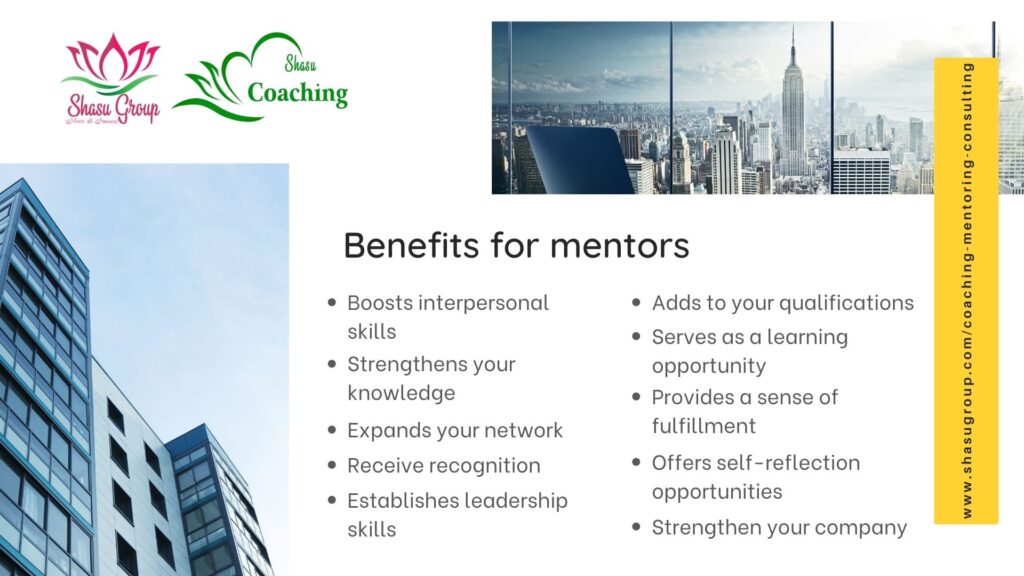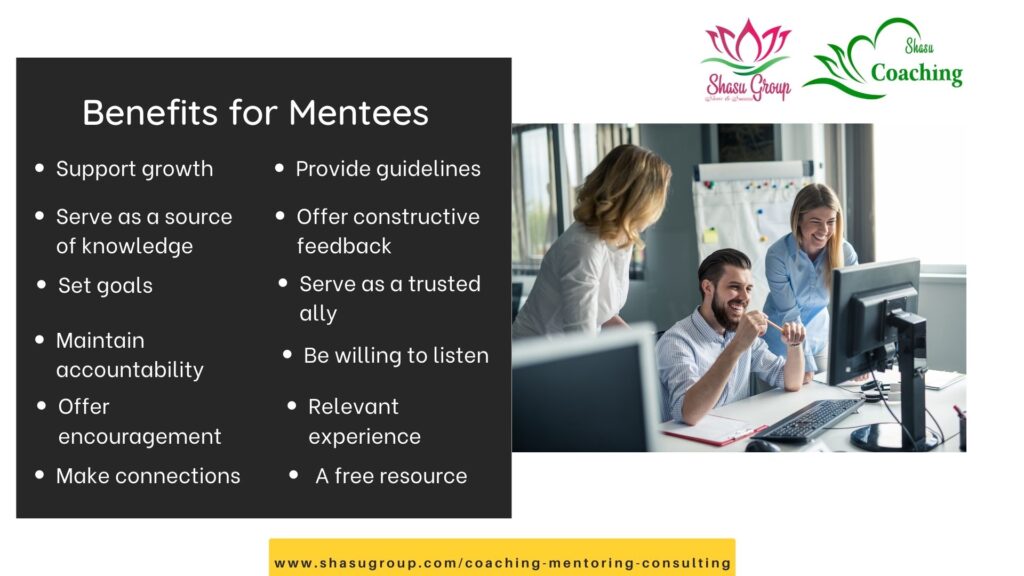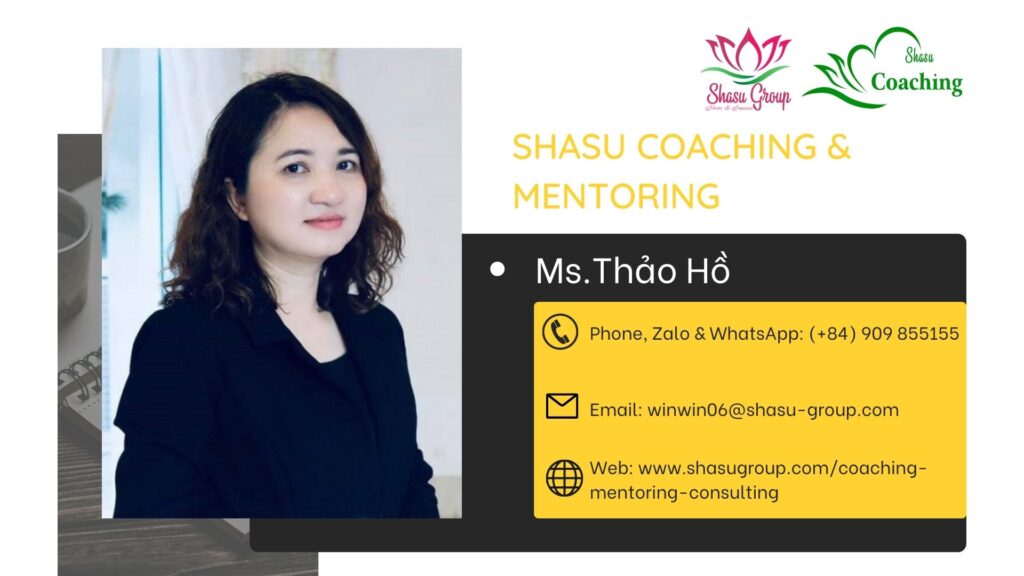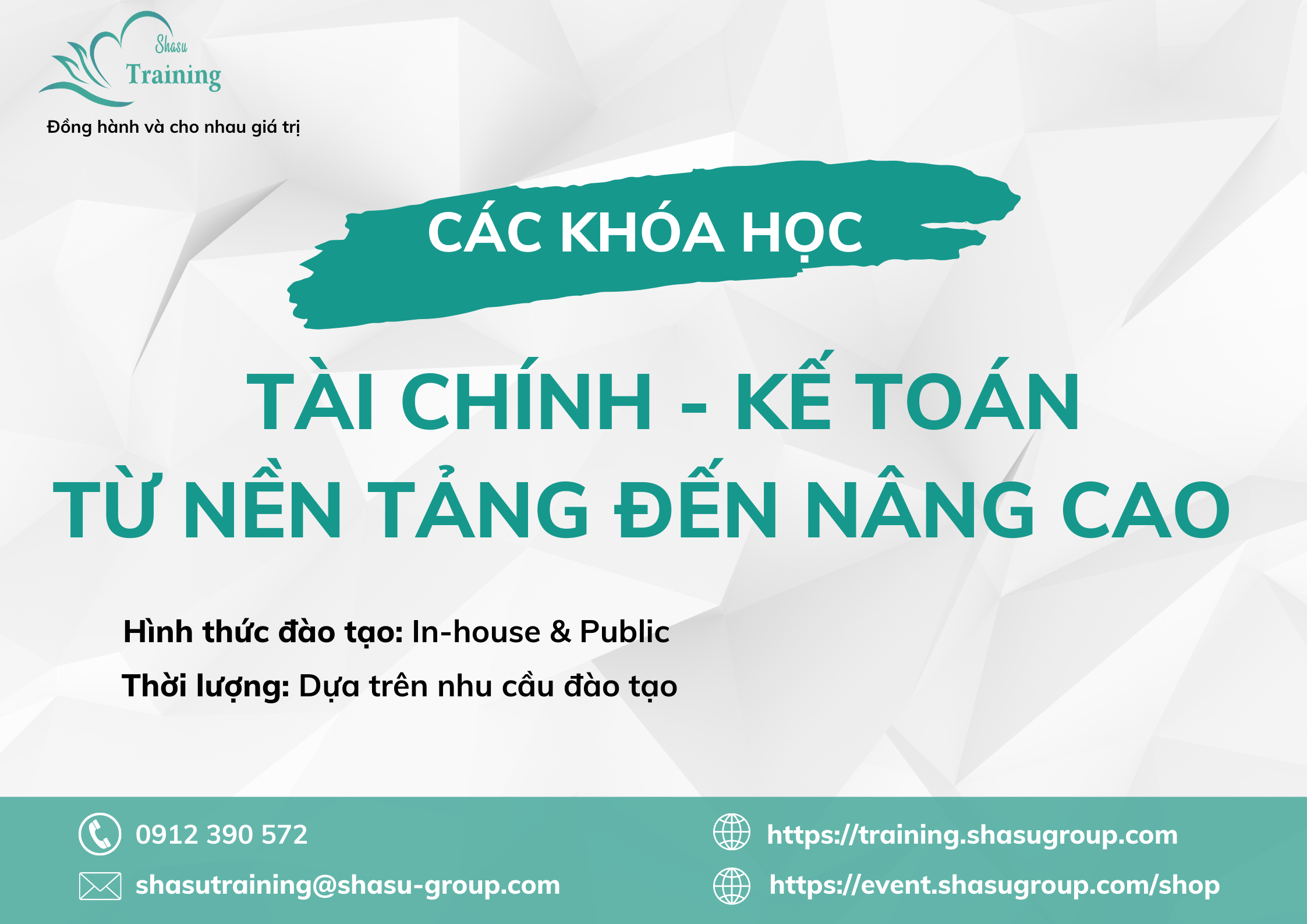A mentor is someone who helps you grow your skills, make better decisions, and gain new perspectives on your life and career. As a mentee, your Executive Mentor will leverage their experience to give you guidance on your career or life now and in the future.
Rather than learning through trial and error, a mentor is a person you can look to for direction and a role model to imitate.
Let’s learn about the benefits of mentoring
Benefits for mentors

Being an Executive Mentor boosts interpersonal skills
There are opportunities for you to improve interpersonal skills, such as communication, active listening, empathy and patience.
One of them, communication is especially essential to mentorship. Because you and your mentee will meet regularly to discuss the mentee’s goals, ideas or concerns and provide instructions or advice.
Besides that, it also helps you develop relationships and collaborate more effectively.
Being an Executive Mentor strengthens your knowledge
Working as a mentor is also an opportunity for you to review your knowledge by sharing the experiences you have gained during the work.
While the goal is to help mentors grow professionally, sharing this knowledge strengthens your own. For skills that you no longer use often, which helps to rebuild or strengthen them.
Being an Executive Mentor expands your network
Networking is a big benefit that instructors receive through mentees. Networking can aid your career, as these connections can lead to promotion and career opportunities.
Being an Executive Mentor can help you receive recognition
Due to the success of mentees, others can see your ability; thereby increasing your career opportunities and your advice becomes more valuable.
Being an Executive Mentorestablishes leadership skills
The opportunity to collaborate and guide mentees will help strengthen leadership skills. This is achieved through managing others effectively according to specific goals. You can use this experience to help advance your career.
Follow us: https://training.shasugroup.com/
Being an Executive Mentor adds to your qualifications
The experience gained through mentoring will make you stand out and affirm your self-worth. When you help your mentor succeed, you can be confident in your skills and abilities. This sets you apart from the crowd and makes a good impression on employers.
Being an Executive Mentor serves as a learning opportunity
Learning from each other is a factor that you can hardly think of when being a mentor. If you and your mentor come from different backgrounds, they can teach you about things you’ve never experienced before.
In addition, the difference of experience will create unique perspectives, young mentees will keep you up to date with new trends that you may have missed.
Being an Executive Mentor provides a sense of fulfillment
If you stick with mentorship long enough, you can become an inspiration to younger generations.
Being an Executive Mentor offers self-reflection opportunities
Mentorship lets you think about and share your experiences. While assessing your positive and negative experiences, you may discover lessons that benefit both the mentee and yourself. Being a mentor may also remind you of what you enjoy about your profession, which can help you feel more engaged at work. Or, if you realize you are unhappy about some things, you can think about ways to improve the situation.
Being an Executive Mentor can help strengthen your company
When you become a mentor, you have the opportunity to consolidate and accumulate your knowledge from mentees. Then, use that same knowledge to train again for your own company.
Benefits for Mentees

Executive Mentor support growth
Mentors will be the one to push their mentees to grow faster through setting goals and giving specific feedback. This creates a positive work environment that encourages growth, as it can demonstrate that their employer values them and wants to see them grow.
Executive Mentor serve as a source of knowledge
Mentors will give you a sense of growth by providing guidance on how to perform specific tasks or develop useful skills.
Executive Mentor can help set goals
Mentors will help you set smart goals and how to achieve them. It’s the smaller tasks in pursuit of the big goal. Through that, you can more easily track and evaluate your progress.
Executive Mentor maintain accountability
A mentor helps their mentee stay accountable to their goals. By tracking progress, mentees help mentees stay focused and on track to complete them.
It can also ensure that the mentor doesn’t forget the goals he or she has set. Knowing that others are watching can act as motivation, as the mentee may not want the mentee to be disappointed by not meeting the goal.
Executive Mentor offer encouragement
When mentees find themselves having difficulty performing tasks or achieving goals, they can turn to their mentees for support. The encouragement of the mentor will help mentees overcome challenges and quickly accomplish their goals.
In addition, mentors can also identify and demonstrate their mentee’s strengths to instill confidence in them.
Executive Mentor help make connections
A mentor can help build their mentor’s professional network. Since mentors often have more industry experience or higher-level careers, these connections can be valuable for career advancement.
Executive Mentor are willing to listen
When you have an idea but don’t know how to implement it, present it to your mentor. They will work with you to research and implement them.
With these insights, the mentor can better understand what steps to take and whether to pursue the idea or walk away.
Similarly, a mentor can also listen and advise them on everyday concerns, such as conflicts in the workplace.
Executive Mentor serve as a trusted ally
Trust represents a core element of mentoring relationships. The mentee must trust that the mentor has their best interests in mind and will provide accurate and honest guidance. The business world can also be competitive, so they need to rely on one another to keep confidential information private when necessary. Communicating regularly and following through on their promises demonstrate two methods of establishing trust in these relationships.
Executive Mentor can offer constructive feedback
A trusting mentorship relationship enables honest feedback. By establishing trust, the mentee understands that constructive criticism aims to build their professional growth rather than make them feel bad. Mentors can identify weaknesses and advise them on ways to improve. Because this is a professional relationship, the mentor plays an objective role. Meanwhile, a friend may hesitate to identify the mentee’s weaknesses because they do not want to appear critical.
Executive Mentor provide guidelines
For individuals just starting their career, a mentor can help set guidelines on professional expectations. For example, they may clarify the priorities of the role and proper workplace behaviors. These guidelines can help the mentee establish appropriate work habits that enable them to focus and perform their job successfully. These effective work habits can help them be more productive and impress their supervisors.
Executive Mentor have relevant experience
When possible, individuals should choose mentors who have the experience relevant to their profession or goals. When mentors convey their successes, the mentee can use them as an example to strive toward and copy the steps they took. Mentors can also share the mistakes they made along their journeys. The mentee benefits because they learn lessons about the mistakes’ negative impacts but do not have to suffer the consequences themselves. Learning about these experiences can also help prepare the mentee for the challenges they can expect to face and provide demonstrable advice on how to overcome them.
Executive Mentor are a free resource
Mentorship typically occurs due to networking or company programs, so mentors do not seek payment. They offer to serve this role because they genuinely want to help the other individual grow and establish a more authentic and personal connection. The lack of payment also opens up mentorship for all types of people, rather than restricting this resource to only those who can afford it.

SHASU COACHING & MENTORING
Contact Ms Thảo Hồ: +84 909 855155 (Phone, Zalo & WhatsApp)
Email: winwin06@shasu-group.com
Web: https://www.shasugroup.com/coaching-mentoring-consulting
Collection & Edit by Marketing Dept from Shasu Coaching & Shasu Mentoring
Reference
- https://www.michaelpage.co.in/advice/management-advice/leadership/what-are-benefits-mentoring
- https://www.indeed.com/career-advice/career-development/why-is-a-mentor-important
Learn more about our services: https://news.shasu-group.com/category/tin-tuc/shasu-consultant-coach-mentor/
Contact Ms. Thảo Hồ for Coaching & Mentoring Services from Shasu https://www.shasugroup.com/coaching-mentoring-consulting
Follow us:











